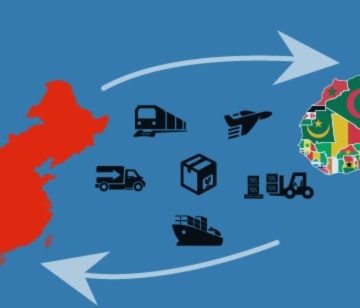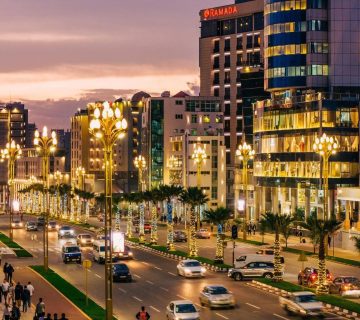In 2025, over a dozen African countries will head to the polls. Yet, the deeper reality is that most of these elections will be less about democratic choice and more about choreographed continuity. The elections are structured to legitimize power, not transfer or at the very least, transform it. From Côte d’Ivoire to Tanzania, and Guinea Bissau to Guinea, millions of citizens will head to polling, but their ballots will register participation, not power. For all the color, music, and campaign drama, these elections will, like many before them, serve to validate the authority of ruling elites and fulfill the formalities of democracy, while hollowing out its substance.
Among the major elections scheduled for late 2025, 82 percent will take place in countries classified as “authoritarian” or “hybrid regimes” by the Economist Intelligence Unit’s Democracy Index. Only Namibia, qualifies as a “flawed democracy”. The rest are governed by entrenched ruling parties (Tanzania and Guinea Bissau), military juntas (Guinea), or long-serving presidents (Cameroon) seeking to extend decades-long tenures. For these incumbents, the elections are less about public choice and more about ticking procedural boxes to maintain domestic calm and international legitimacy.
The Bad and the Ugly
In Tanzania, which heads to presidential and legislative elections on October 29, the ruling Chama Cha Mapinduzi (CCM) party, has been power since independence in 1961 (rebranded as CCM in 1977). CCM and the incumbent President Samia Suluhu face little genuine threat. Main opposition parties including CHADEMA and their candidates such as Tundu Lissu, remain battered by legal restrictions, arrests, and disqualifications. The country’s political environment, classified as “hybrid”, combines the mechanics of electoral democracy with the reflexes of authoritarian control. After years of opposition repression including bans on rallies and the jailing of figures such as Freeman Mbowe and Tundu Lissu (only absolved two days ago), the upcoming polls appear designed to reproduce CCM dominance.
Further west, Guinea-Bissau, classified as “authoritarian”, is heading toward yet another tightly controlled election in November 2025. The polls will occur in a country long marred by military meddling and executive overreach. With the political establishment dominated by President Umaro Sissoco Embaló and his Madeira Rindo Partido, the outcome is expected to perpetuate elite control rather than deepen democratic accountability.
In Côte d’Ivoire, the general elections scheduled for October 2025 will likely produce President Alassane Ouattara’s fourth term. The 2016 constitutional amendment, reset term limits and paved the way for Ouattara’s controversial third term in 2020 and now fourth term. Though opposition parties remain active, the political field skewed in Ouattara’s favour; elections thus only offer a democratic façade.
In Cameroon, the 92 year old President Paul Biya secured his eighth term in the October 12 elections, extending his 43 year rule. The main challenger, Issa Tchiroma Bakary rejected the poll results but the constitutional court has dismissed any petitions against President Biya’s victory. Biya was too old to even campaign, choosing to flood social media with AI generated videos but still “won” 54 percent of the vote. Bakary was a distant second with 35 percent of the vote. Biya’s reign has over the years turned elections into a handmaid of reproducing a “forever president”.
Enter Military Governments
Pseudo-civilian governments such as Cameroon or Equatorial Guinea, where military leaders “won” elections and reigned for decades through regular “elections” are re-emerging in Africa. Coup leaders in Chad and Gabon won the 2024 and 2025 elections respectively, while coup leaders in Mali, Burkina Faso and Niger have indefinitely postponed elections. Guinea which heads into elections in December, has mandated presidential candidates to pay USD 100,000 nomination fees, a move aimed at locking out the military ruler, General Doumbouya’s opponents. These military governments have joined the long-established tradition of African presidents treating elections as legitimacy costumes.
These patterns are not isolated; they are systemic. Across Africa, ruling parties such as CCM (Tanzania), the National Resistance Movement (Uganda), and by extension the People’s Democratic Party (Nigeria) have all demonstrated how political systems can simulate competition while extinguishing it. Uganda is for example heads elections in January 2026, but one of the credible opposition leaders, Kizza Besigye, is in detention since November 2024. The other opponent, Bobi Wine, suffers harassment from security agencies, which undercut his capacity to mobilize support. The incumbent, President Yoweri Museveni, has been in power since 1986, sustained by constitutional amendments which lifted term and age limits and a militarized state. He now seeks a seventh term.
A Forgone Conclusion?
The persistence of illiberal patterns underscores a paradox of African democracy — the ritual of voting co-exists with the erosion of real choice. Elections in this sense are a cyclically performative, promising change but delivering continuity. Across the continent, incumbents have mastered the choreography of competitive authoritarianism — holding regular elections that meet the procedural benchmarks of democracy while subverting its substantive spirit. These “tick-box” elections are calibrated to manage perceptions —order and progress locally and legitimacy to secure aid, trade, debt relief and diplomatic recognition internationally.
Citizens in most of these countries thus vote but without a voice, while the opposition parties contest, but within boundaries drawn by incumbents. Electoral commissions exist, but under executive control. Courts rule, but within limits tolerated by power. Africa’s oldest ruling parties — from Tanzania’s CCM and Uganda’s NRM, to Mozambique’s FRELIMO and Zimbabwe’s ZANU-PF — remain unshaken, using electoral rituals as a shield against both domestic dissent and foreign criticism. The consequence is a democracy that looks alive on paper but hollow in practice. Governments just check the boxes—register voters, open polling stations and announce results, mostly incumbent victories. Meanwhile, opposition parties boycott, courts dismiss petitions, and the public retreats into apathy, cynicism and disengagement.
In the 2025–2026 electoral cycle, North to Southern Africa, from the Sahel to the Great Lakes, voters will queue to “choose” leaders who have already chosen themselves. The upcoming elections illustrate a continent caught between democratic aspiration and authoritarian adaptation. As long as the international community remains satisfied with procedural compliance — elections held on time, ballots printed and observers invited — African leaders will continue to tick their boxes, while citizens tick their ballots, without change.
Photo Credits: Niklas Elmehed
Edmond Pamba is a Researcher at HORN International Institute for Strategic Studies.



